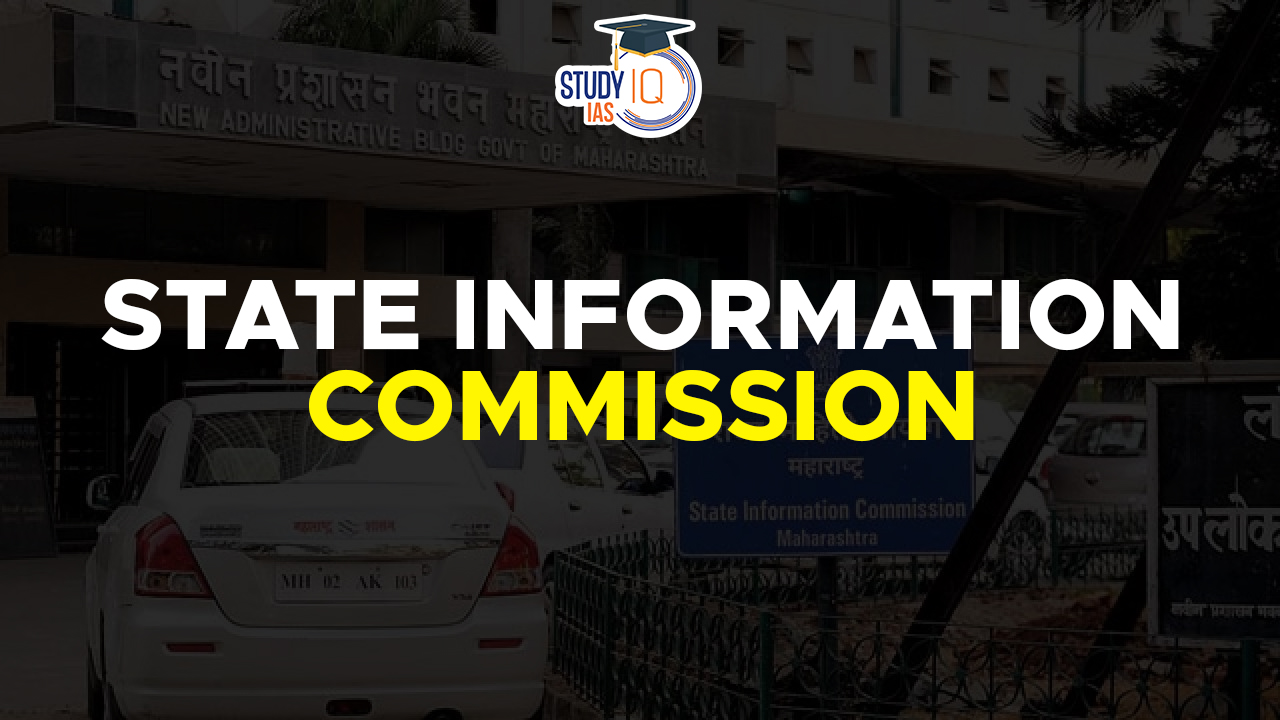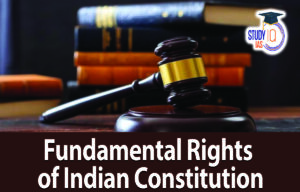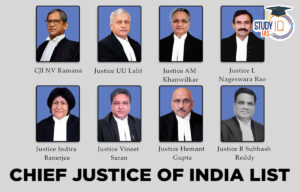Table of Contents
State Information Commission
Under the terms of the Right to Information Act of 2005, the state government formed the State Information Commission, a quasi-judicial body. As a result, official gazette notifications were used to establish State Information Commissions in each state.
The State Information Commission is an important part of Indian Polity which an important subject in UPSC Syllabus. Students can also go for UPSC Mock Test to get more accuracy in their preparations.
State Information Commission Background
According to the Right to Information Act, of 2005, states in India are required to create a State Information Commission, which must be published in the state’s official gazette. The State Information Commission is a strong, independent body that conducts investigations and renders judgments on appeals. In relation to state government organizations, financial institutions, public sector businesses, and other entities, it hears complaints and appeals.
State Information Commission Composition
A State Chief Information Commissioner and a maximum of ten other State Information Commissioners make up the State Information Commission. The Chief Minister serves as the committee’s chair, along with the Leader of the Opposition in the Legislative Assembly and a State Cabinet Minister who has been nominated by the Chief Minister. The Governor selects the commissioners on the committee’s recommendation.
The members should be well-respected individuals with extensive knowledge in areas like administration, law, science, social service, management, journalism, and media. They cannot be members of any state or Union Territory legislature, hold other paid positions, belong to political parties, run businesses, or practice professions.
As per a 2019 RTI amendment, the State Chief Information Commissioner and State Information Commissioners serve for five years or until they turn 65, whichever comes first, with no chance of reappointment. Their salary and benefits must follow Central Government rules.
| The Composition of the State Information Commission |
| The State Information Commission includes a State Chief Information Commissioner (SCIC) and up to ten State Information Commissioners (SIC). They are appointed by the Governor based on recommendations from a committee made up of the Chief Minister (Chairperson), the Leader of the Opposition in the State Assembly, and a Cabinet Minister chosen by the Chief Minister. |
Qualification of State Information Commission
The State Chief Information Commissioner and State Information Commissioners should be respected individuals with broad
| Knowledge and experience in areas like: |
They should NOT be:
|
State Information Commission Tenure
The State Chief Information Commissioner and State Information Commissioners serve for a term set by the Central Government or until they turn 65, whichever comes first. They cannot be reappointed. A State Information Commissioner can be appointed as State Chief Information Commissioner, but their total time in office cannot exceed five years.
State Information Commission Removal
The governor can remove the State Chief Information Commissioner or any State Information Commissioner for the following reasons:
- If they are declared bankrupt
- If convicted of a serious crime
- If they take any paid job outside their official duties
- If deemed unfit to serve due to health issues
- If they have financial interests that could interfere with their work
Additionally, the Governor can remove them for proven misbehavior or incapacity, but must refer the case to the Supreme Court for an investigation. If the Supreme Court supports the removal, the Governor can proceed with it.
State Information Commission Powers and Functions
Any person may file a complaint with the Commission, which must consider it. If there are sufficient grounds, the Commission may order an inquiry into any topic (suo moto power). The Commission can conduct investigations in civil cases with the same authority as a civil court.
Any record controlled by a public authority may be examined by the Commission during the investigation of a complaint, and no such record may be withheld from it for any reason. In other words, during the investigation, all public records must be provided to the Commission for review. The Commission has the authority to ensure that the public authority abides by its rulings.
State Information Commission Issues Associated
Issues with the State Information Commission (SIC):
- Lack of Transparency: The selection process for Commissioners is unclear, raising concerns about fairness and effectiveness, especially with many former bureaucrats being appointed.
- Vacancy Problems: Delays in filling vacancies create backlogs, slowing down the resolution of cases.
- Insufficient Training: State Public Information Officers (SPIOs) often lack knowledge of the RTI Act, causing delays in processing applications.
- Poor Record Management: Inadequate systems for managing records lead to slow responses to RTI requests.
- Delayed Appeals: There are no time limits for second appeals, resulting in backlogs and delays.
- Low-Quality Information: SPIOs sometimes provide inadequate information, frustrating applicants and undermining transparency.
- Lack of Awareness: Many people, especially in marginalized communities, are unaware of the RTI Act, limiting its impact.
Strategy for Advancement
- Regularly share information to promote transparency.
- Follow Supreme Court directions to fill positions quickly and transparently.
- Improve record management and digitization for easier access to information.
- Launch campaigns to educate the public about the RTI Act and its benefits.
- Protect whistleblowers and ensure accountability to strengthen governance.
Conclusion:
The SIC is vital for promoting democracy and good governance in India. By making the Right to Information a reality for everyone, it can foster a culture of transparency and accountability. Steps should be taken to enhance its effectiveness.
State Information Commission UPSC
The State Information Commission (SIC) performs judicial-like duties. A State Information Commission may be established in accordance with the terms of the Right to Information Act. State information commissions are essential for promoting transparency in government. As a result, they are assisting in the fight against tyranny, abuse of authority, nepotism, and corruption. Students can read all the details related to UPSC by visiting the official website of StudyIQ UPSC Online Coaching.


 Fundamental Rights of Indian Constitutio...
Fundamental Rights of Indian Constitutio...
 Waqf Act (Amendment) 2025: Key Highlight...
Waqf Act (Amendment) 2025: Key Highlight...
 Justice BR Gavai will take oath as 52nd ...
Justice BR Gavai will take oath as 52nd ...






















